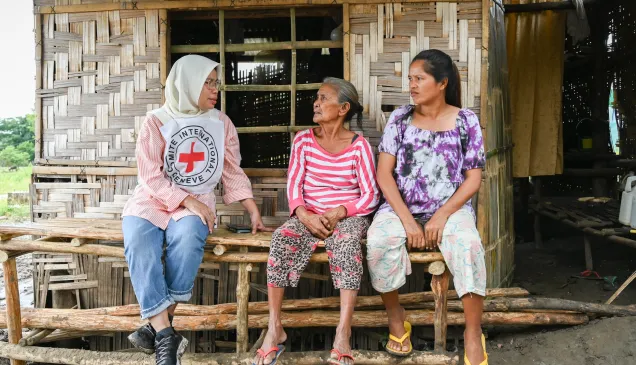International Humanitarian Law is key to upholding multilateralism and addressing global challenges
The ICRC statement to the United Nations Security Council Open Debate on "Maintenance of International Peace and Security: Strengthening Multilateralism and the Role of the United Nations" delivered by Robert Mardini, Permanent Observer to the UN and Head of Delegation, ICRC New York
The ICRC warmly welcomes this debate on Strengthening Multilateralism and the Role of the United Nations. We know from our humanitarian work in armed conflicts around the world how cooperation between States is of critical importance in the maintenance of international peace and security.
As "guardians" of international humanitarian law (IHL), we also have our own distinct multilateral relationships with States and have seen how effective multilateralism can have a long lasting impact.
The Geneva Conventions will celebrate their 70th anniversary next year. Adopted in 1949, they have been universally ratified by States and are core to international humanitarian law. To this day, we see their impact on the ground. We know that they are not only proof that multilateralism can work; they are essential for multilateralism to work.
Today, I want to emphasize three points on why IHL is key to better upholding multilateralism and effectively addressing today's global challenges.
First, IHL mitigates suffering and the impact of armed conflict on people's lives.
Multilateral agreements by States develop IHL to ensure that legal limits are in place. For example, multilateral efforts have secured humanitarian agreements on nuclear weapons, chemical weapons, landmines and the arms trade.
These rules save lives.
Current multilateral discussions on certain new weapons are essential to keep IHL up to speed with rapid developments in technology.
Greater State support for the implementation of and respect for IHL can help prevent and minimize human suffering in armed conflict.
Second, IHL regulates and limits the methods and means of warfare.
Today's armed conflicts involve large numbers of States in protracted regional conflicts in many parts of the world – often working together in multilateral coalitions and partnered operations. Multilateral military operations must respect the rules which States have developed and committed themselves to - under the Geneva Conventions and other components of IHL.
States supporting parties to armed conflict can and should use their influence on the conduct of hostilities to encourage greater respect for IHL. They can do this, for example, by embedding humanitarian rules into their own and their partners' policies on targeting military objectives, training soldiers and fighters and detaining adversaries.
Third, IHL is principled and people-centered.
Under the UN Charter, all people of the world and the sovereign equality of States are given due consideration. This people-centered view is core to IHL, to principled humanitarian action, and to impartial humanitarian organizations, like the ICRC. Our work in reducing human suffering across all conflict-affected communities is founded on the principles of humanity, impartiality, neutrality and independence.
Multilateral cooperation respecting these principles and rules – agreed to by all States – is necessary for humanitarian action to be effective, so that civilians can receive the support they are entitled to under the Geneva Conventions.
Mr. President,
IHL is integral to multilateralism and multilateralism is integral to IHL.
These rules - painstakingly developed by States over the years – create important multilateral consensus on the limits of violence which can be used on the ground every day to reduce human suffering and protect essential infrastructure. These rules work best when multilateralism works.
People suffering in armed conflicts need multilateralism that works.
Our call to the Security Council, on the upcoming 70th anniversary of the Geneva Conventions, is to renew its commitment to people, to International Humanitarian Law and to multilateralism.
Thank you.



